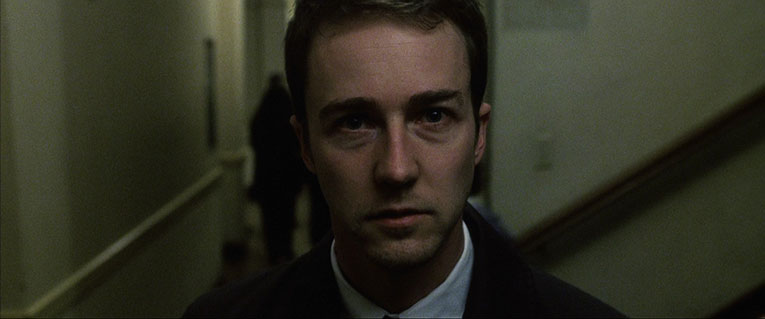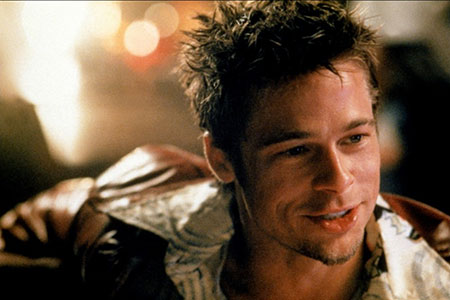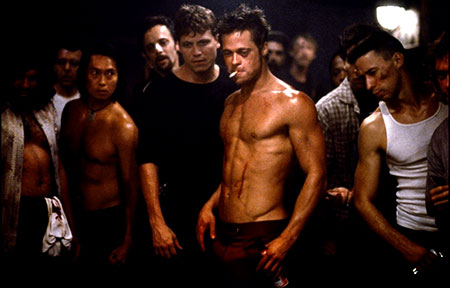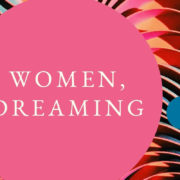Whoever put down David Fincher’s adaptation of Chuck Palahniuk’s Fight Club as an expression of masculinity in its rawest form clearly missed the entire point.
Palahniuk believes that a fight is where you’re truly alive. A fight is what shakes you out of wanting the prettiest furniture or listening to the most serene music. A fight is what life is all about.

Quit your job. Start a fight. Prove you’re alive.
If you weren’t shaken out of your comfort zone and driven to do the best you truly can after (you watched or read) Fight Club, this world really doesn’t need you. The world doesn’t need you to get up in the morning, brush your teeth, and go to work at nine. The world doesn’t need you to be a good husband or wife, or a great mother, or a car salesman. The world doesn’t need you to get a job or bank balance. Or a car and a house.

“You called me because you need a place to stay.”—Tyler Durden.
The world doesn’t need you. Not even the Prime Minister. Not until you make it.
Woven under a web of metaphors, Fight Club is the quintessential fuck-you to everyone who believes you need to get a job or a girlfriend. You don’t, and the film or the book tells you the same in as many words. There is no story, and you can see Palahniuk’s internal struggle through the bile that the protagonist spews. Beginning at a deadbeat job, suffering from insomnia and resorting to support groups (Marla Singer at Remaining Men Together!) for connecting with human beings, our ‘hero’ is like K. in Kafka’s books—only, the government is represented here by the requirements of society itself. He struggles for meaning as life happens to him, until he finds solace and comfort within himself in the shape of Tyler Durden, a guy who looks like he wants to look, fucks like he wants to fuck, and is smart, capable, and most importantly, free, in all the ways that our hero is not.
And then, in the end, our hero goes ahead and shoots himself. Oh, the intrigue!
Fight Club is one of those pieces of literature adapted to film, where both stand, independent of each other, as works of art. Comparing the two would be blasphemy (that I’m not man enough to commit), but keeping in the spirit of Palahniuk, I will. They essentially speak of the same thing: The clear and present lack of a life that the world is undergoing.

Welcome to Fight Club.
And it’s just that much more pertinent to our great brown land that seems to be mindlessly aping whatever seems to be trending on Twitter without knowing what’s really going on. It’s all the same, for you and I—go to school, get a job, buy a house, get married, die. Why? There wasn’t a blueprint when it all began. Who made this one? What if I choose to waste my life away staring at stars or wallowing in my own misery?
The book is a masterpiece. Palahniuk’s literary style hits you like a punch from down south and gets you on the chin. He isn’t looking to provide clarity. With four formative characters and a revolving door of incident, Palahniuk is present in the book in both mind and body, leading the reader through what he seemingly underwent while, or before, writing this. The architectonic integrity of the novel remains intact, since it basically begins and ends at the same scene. The bullshit is in the details, and Palahniuk’s extraordinary attention to the same makes it all the more enjoyable, although I’m not sure if he intended that.
What sets the movie apart are Messrs William Bradley Pitt and Edward Norton, with Meatloaf and Helena Bonham Carter providing great comic relief. Every scene is well-crafted, and most importantly, merits itself on screen. Whether it is the splicing of the sex organs in scenes, or the depiction of Bob and his bitch-tits, Fincher makes the movie talk in many different languages. Which one you choose to listen to, is entirely your choice.
If you really want to choose between the two, choose the film. I would. If only for Brad Pitt’s mindblowing performance as Tyler Durden, engaging in what can only be summed up as one giant actors’s orgasm with Edward Norton’s narrator almost throughout the film. Mind you, this is not the Brad Pitt of Mr. and Mrs. Smith, but more the gritty, less chocolatey Pitt from 12 Monkeys.
I won’t wind up by saying this is one of the best book/film combinations that I’ve read/seen, because that isn’t what Palahniuk/Fincher are going for, but it is.
In today’s world of designations, brands, C.T.C.s, sponsored holiday packages. and interplanetary travel, to me, Fight Club represents all that is left of humanity. Feel free to disagree. But remember, the first rule of Fight Club is, you don’t talk about Fight Club.
And someone just broke the rules.









Very thought provoking piece. I couldn’t agree more. What is it then that makes us do, all that we do? ‘Acquired’ knowledge perhaps. But are we so hamstrung that we have to reach out for a blueprint each time? Whatever happened to ‘independent’ learning? Why cant we draw our own conclusions? Why cant we be an experimentalist in our own right?
I’m afraid you missed the forest for the trees. Fight Club isn’t a call to arms or a reason to fight. He isn’t advocating a fight club, he’s warning against it and the impulse that drives it. It’s a critique of modern consumerist society, and how it ignores and subdues the more visceral part of our psyches. It’s essentially a communal fantasy and the fact that so many people can relate to that fantasy proves his point that there is something very fucked up about how our society and our systems function right now.,
Someone just broke the rules. Witty perhaps, original hardly. We are the people that Tyler Durden laughs at. And we are the same ones who applaud him. Intellectual masturbation about getting out of your comfort zone means less than a whore’s virtue in today’s society. Even being original about not being original has been done to death. Just remember that while we were there wagging our tongues at the parties about existentialism, the Tyler Durden’s of this world were moving on. They are no longer ‘in your face’ fuck the world. There is a real humanity that doesn’t subscribe to the fact that you are not needed until you make it. Being free in the face of opposition by sticking to the right set of convictions is what this movie means to me. Start a fight today!…with your weak self.
What you, my friend, in your efforts to prove me wrong, completely forgot to read was the part where I said it doesn’t even need you to be you.
There are no Tyler Durdens in this world, and sadly that is the part which I mean to draw attention to. Whoever you were talking about when you mentioned moving on, does not exist. When you’ve got that clear in your head, and have the ability to accept it, come back, and we’ll share some.
Read a little less, think a little more. Don’t miss out on the beautiful in the search for something original.
In your effort to play the hero who saves the day with his maverick interpretation of art, you forgot to breathe.
“Being free in the face of opposition by sticking to the right set of convictions is what this movie means to me.” To me, it means wasting two-and-a-half hours watching crap that someone else made, and talking about it to fill the voids in the rest of my useless life. So please, find someone else who’ll buy your righteous living.
Just like you’re not your name or age, you’re not your gender, you’re not your class, you’re not your greatest idea or invention.
And really, “Pimp-who?”, not quite low enough. And as long as starting a fight goes, you’re already in one. With *your* weak self. Mine’s away jerking off to Beyonce.
See you on the other side.